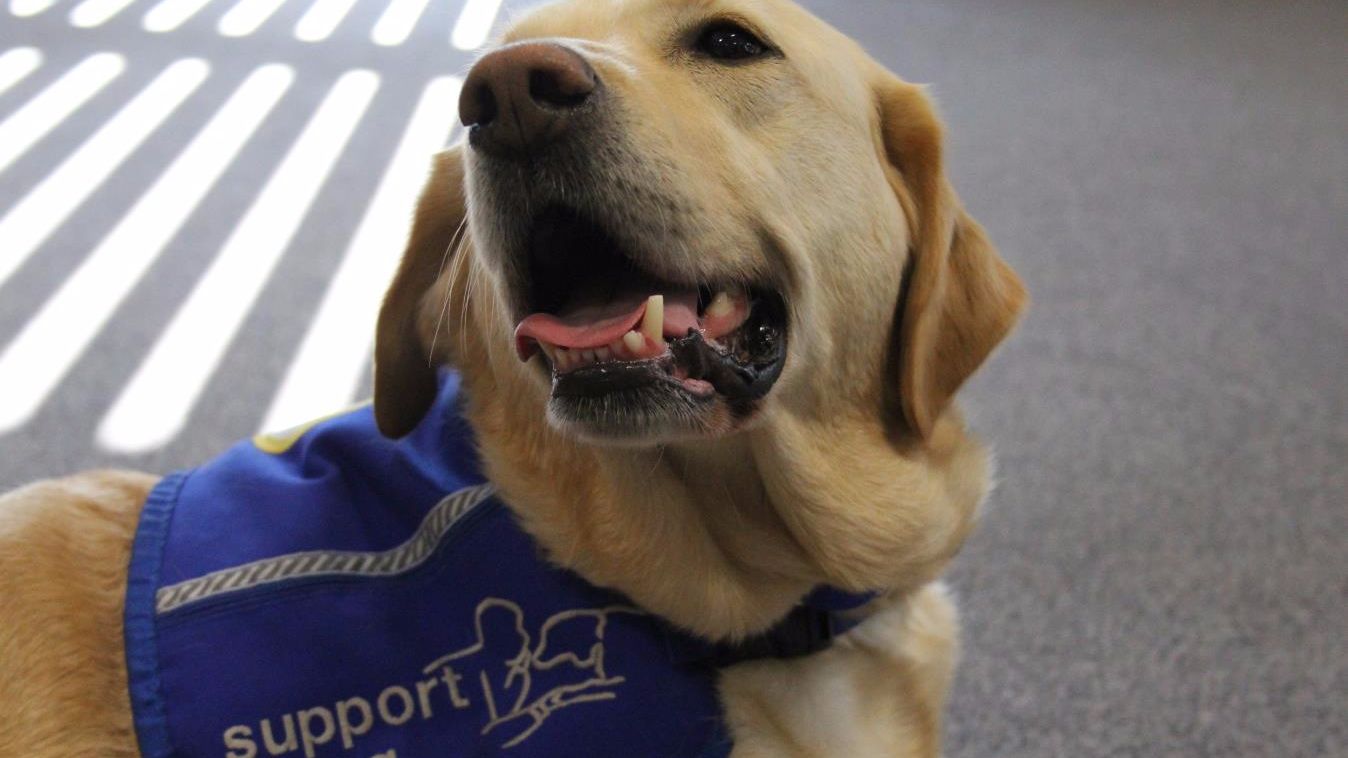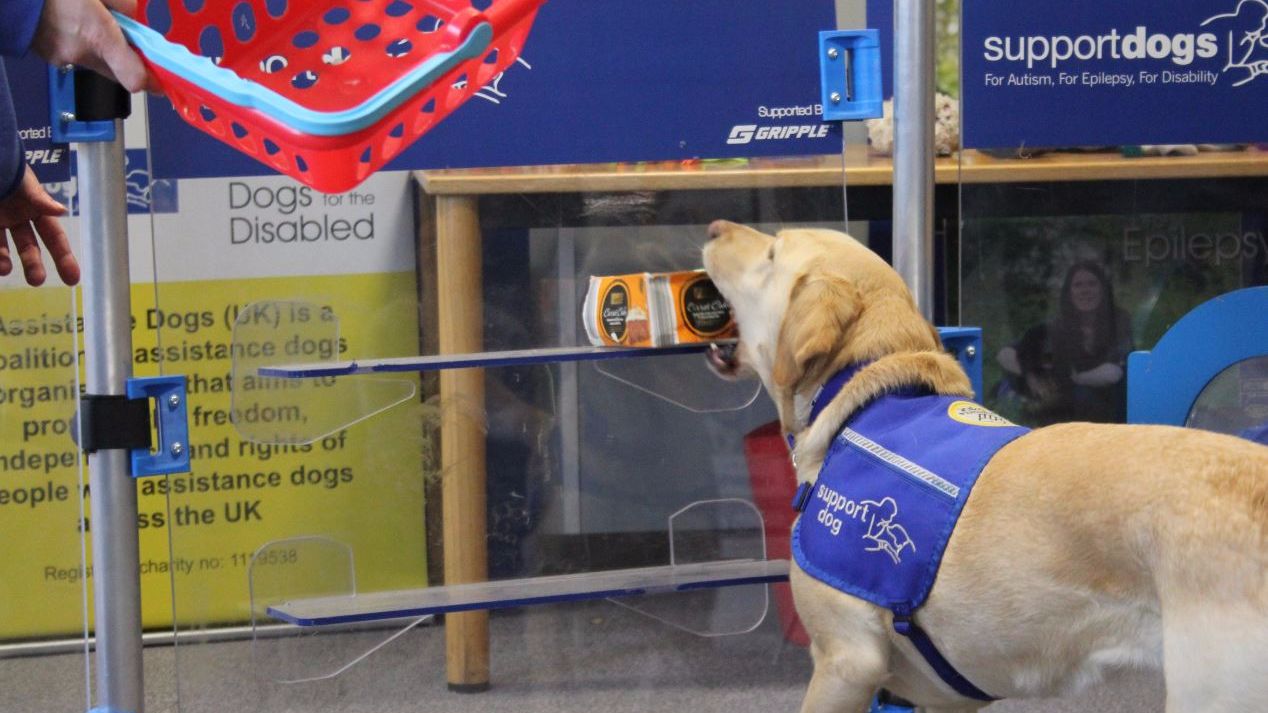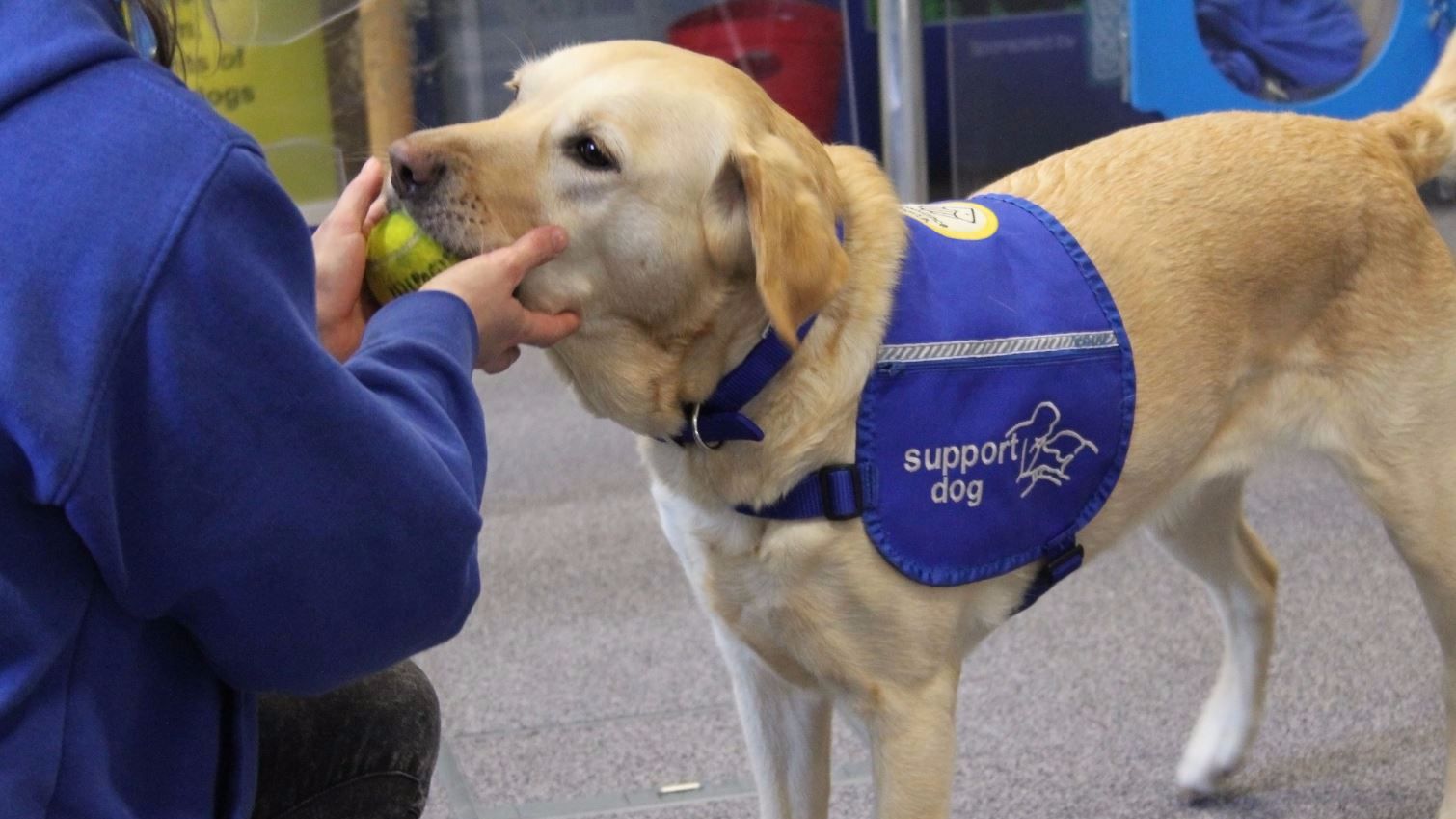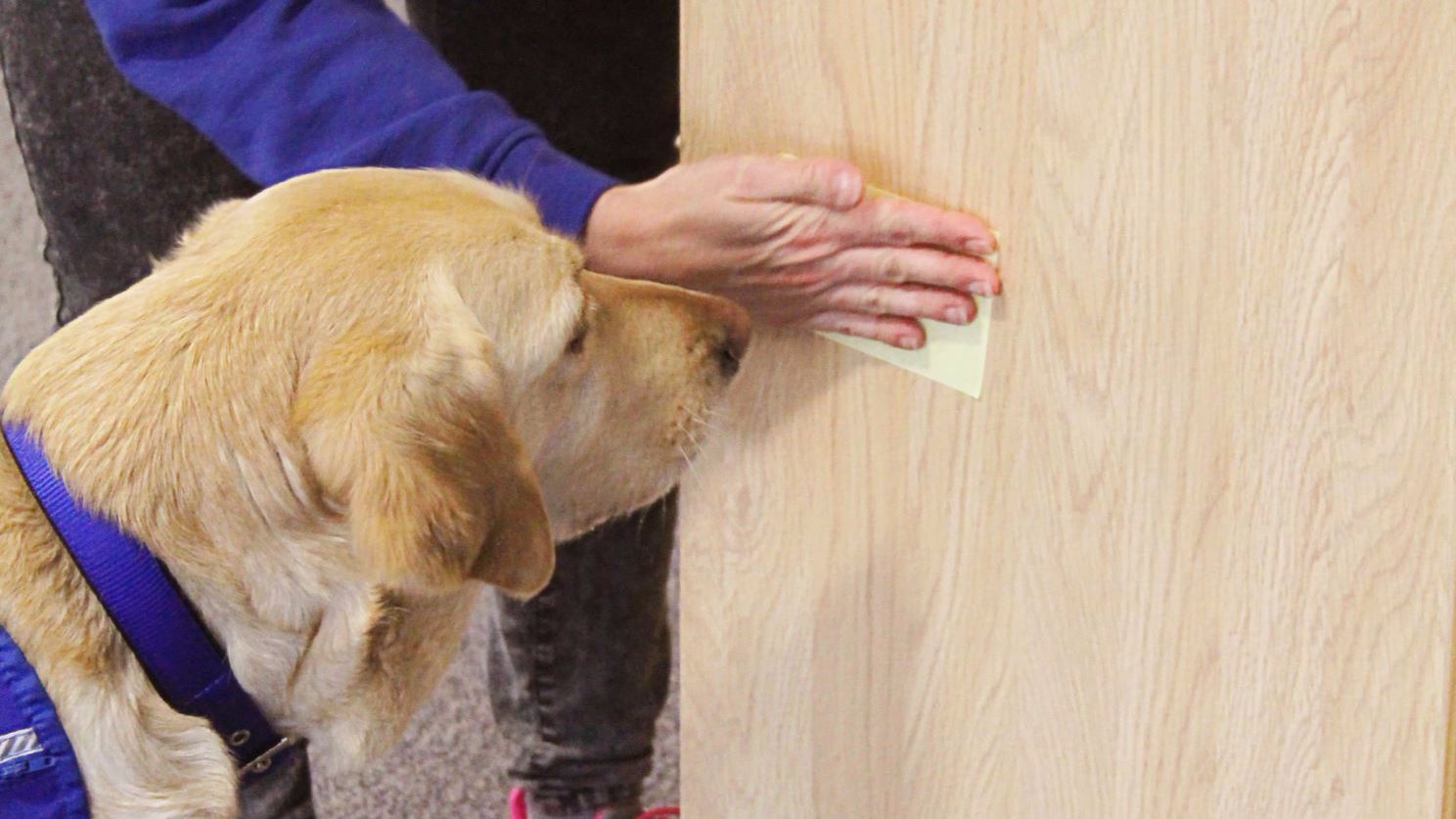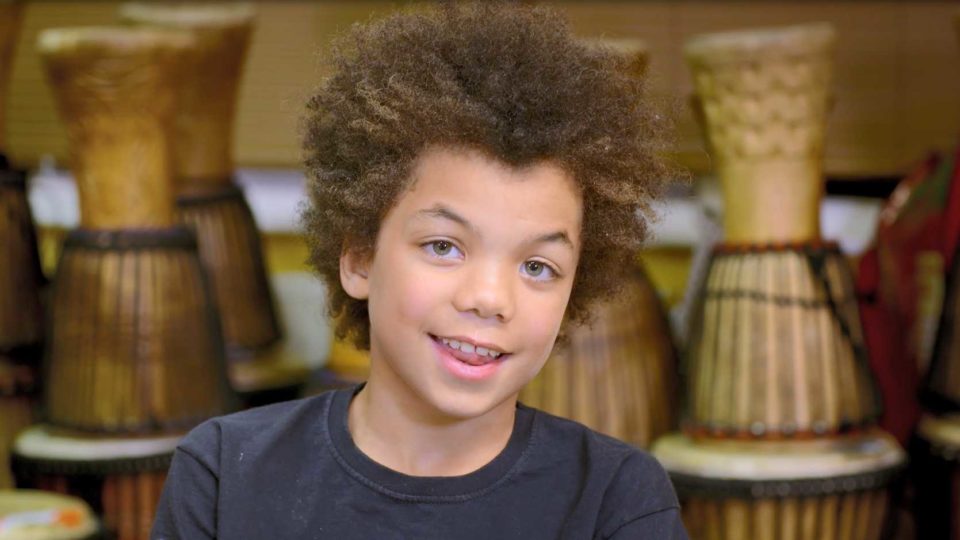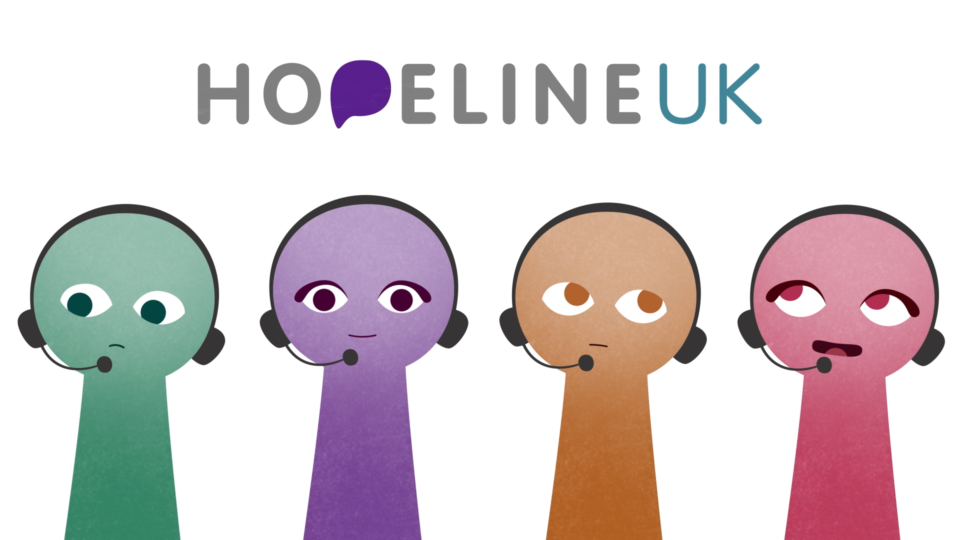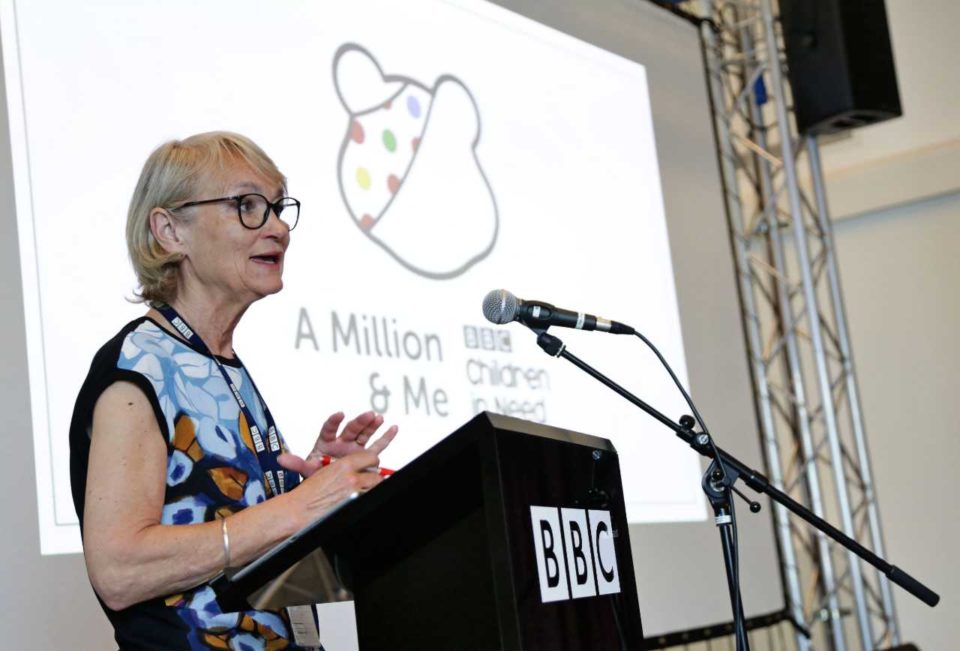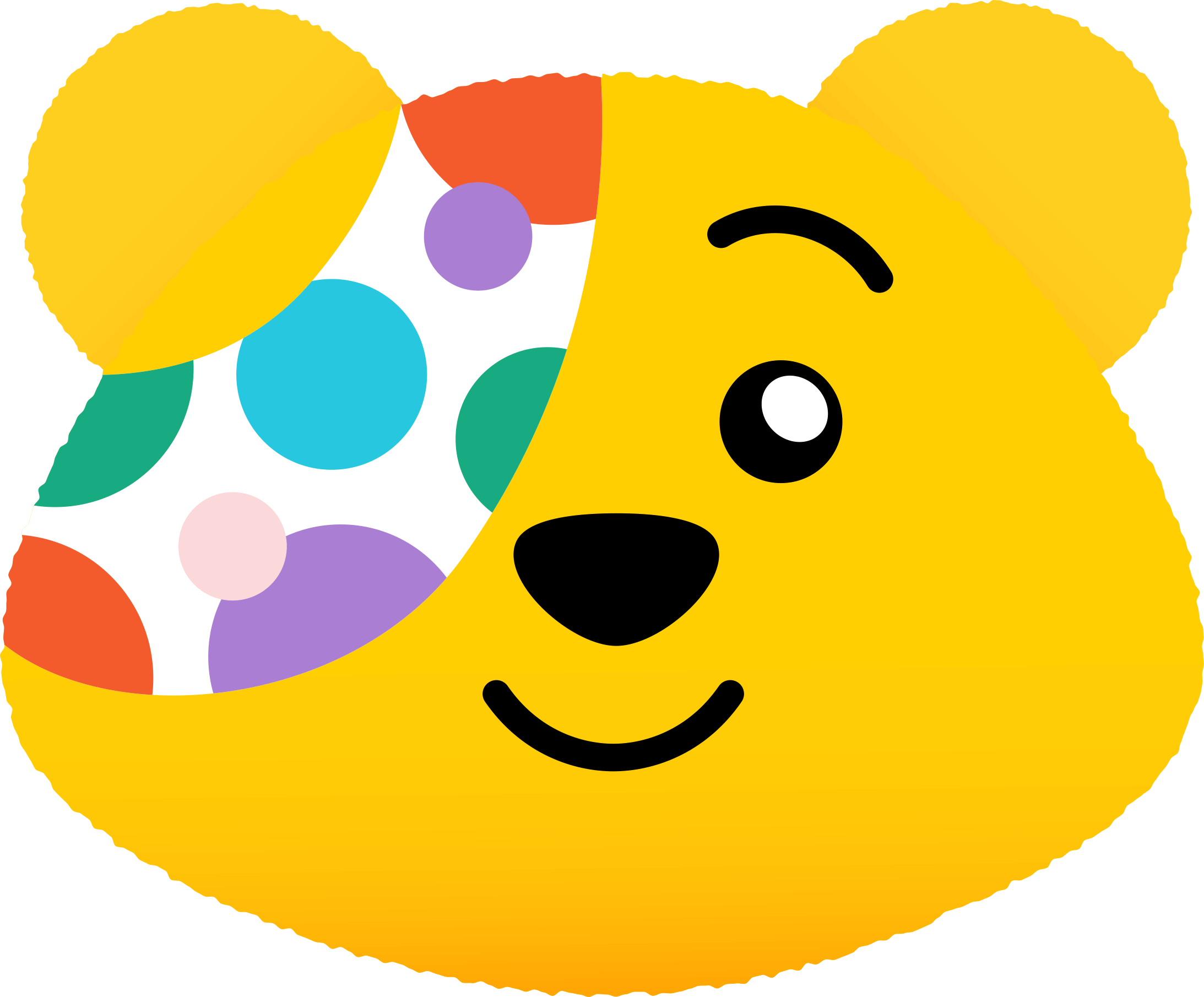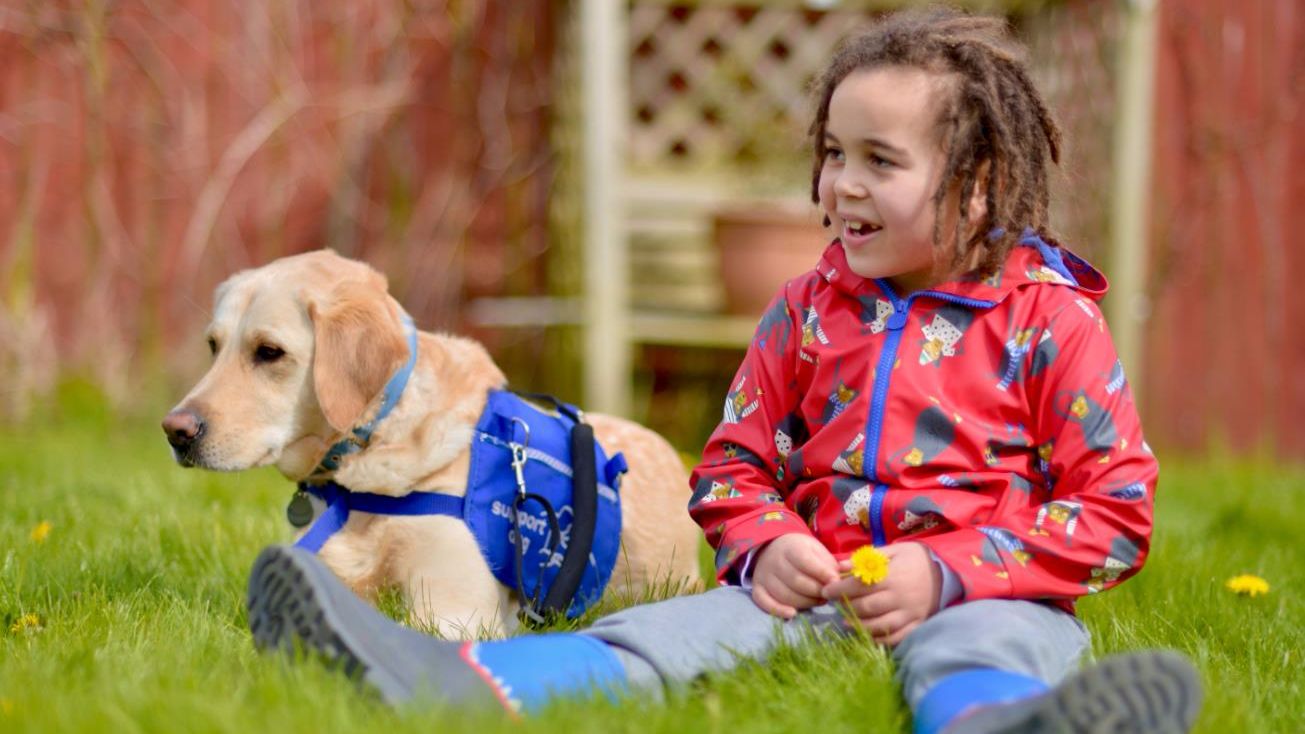
The furry friends keeping children safe
The chance to explore the world, to learn from experience and to make friends is incredibly important for all children, but sometimes it can be more challenging.
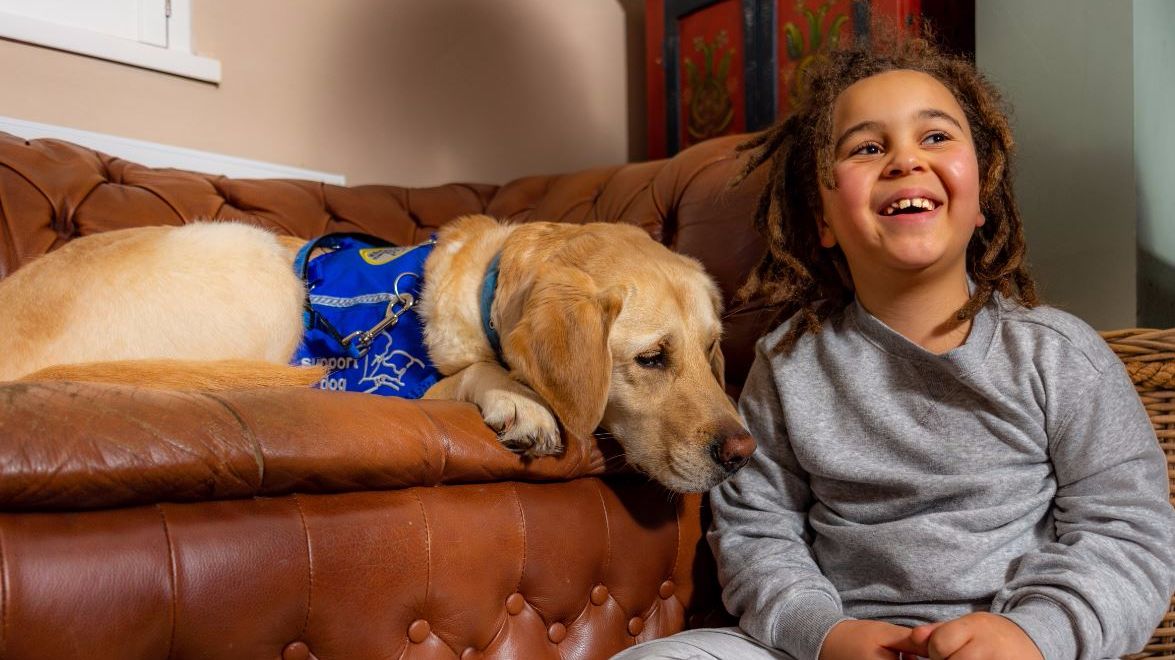
Danny, Fundraising Manager at Support DogsAutism is very much a sensory disability. When you leave the house there’s lights, there’s noise, there’s sound, and it can be completely overwhelming. One of our parents described their autism support dog as a ‘portable safe place’, the focus isn’t on all the lights and the sound and the noise, it’s on the dog.
Some children on the autism spectrum can find it hard to express their feelings in a way that others understand, whilst others may have a limited sense of danger and a tendency to wander off. This can make it difficult to find opportunities for freedom and exploration.
For young people with a physical disability, there may be physical challenges which make it more difficult to be independent in the way that many teenagers wish to be; going out, meeting new people and making friends.
That’s where Support Dogs come in. With the help of funding from BBC Children in Need, Support Dogs specially train assistance dogs to work with children and young people on the autism spectrum or with physical disabilities.
The dogs provide a huge range of practical support both around the house and out in public, from fetching the phone in emergencies and unloading the washing machine to removing coats and jackets and keeping children from wandering away.
But they also offer emotional support; alerting children of harmful behaviour, comforting them in daunting situations and offering a close and supportive friendship.

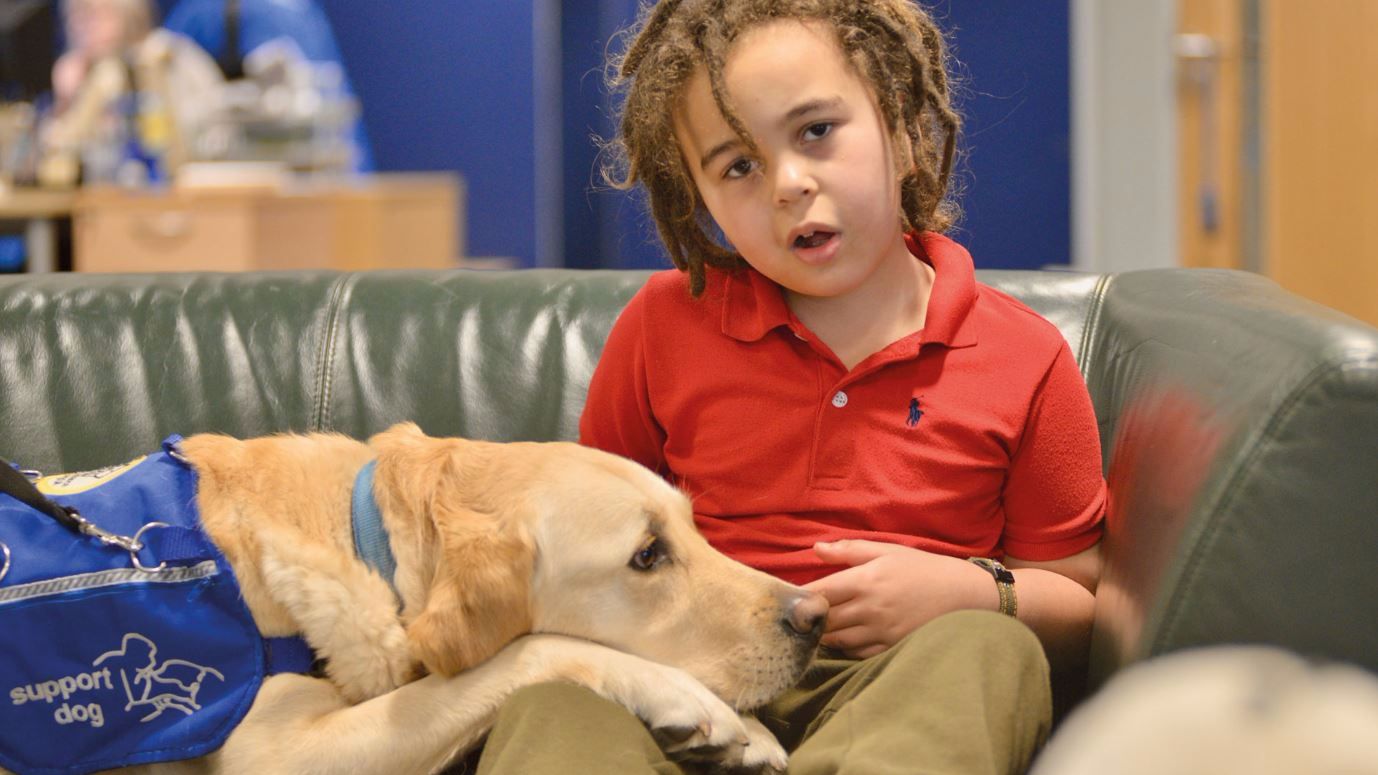
Kelly, Louis’ mumIggy has become Louis’ best friend. Children on the autistic spectrum they can find it difficult to make friends, but with Iggy, he doesn’t require anything back from Louis. Louis’ got an independence that he’s never had before. When we’re out and about, even though he is strapped by his waist to Iggy, he doesn’t have to hold my hand, he isn’t in a wheelchair, he’s got that sense of freedom. Iggy is his best friend.
Like many support dogs, Iggy is very calm and specially trained to only listen to Kelly’s commands.
Outdoors he is always by Louis’ side making sure that Louis doesn’t wander off or find himself in any danger. He also helps Louis with his balance and coordination as they walk alongside each other.
At night time Iggy remains by Louis’ side, providing comfort, reassurance and most importantly, a good night’s sleep.
BBC Children in Need also fund the training of disability assistance dogs for young people with physical disabilities.
“Our disability programme has traditionally only been for adults,” says Danny, “but with the help of BBC Children in Need, we’ve been able to offer this to children too.”
The pilot programme will focus on increasing independence for children and young people in early teenage years.
Danny, Fundraising Manager at Support DogsWhen children are really young, they’ve got parents around all the time, helping them with day-to-day tasks, but children grow up, and they don’t want mum and dad around all the time. They want to be independent. And that cry for independence comes long before you’re an adult. It starts to hit in your teenage years. Having a support dog means they can go to friend’s house, go to the cinema, go to the bowling alley; they can do all the things that teenagers want to do.
A huge amount of work goes into training and carefully matching dogs with the right family. It’s as much about the dog’s ability to carry out specific tasks, as it is about their personality and bond with a child.
“We look for different things depending on the kind of support they will provide,” explains Danny.
“For our autism programme, we want really calm, really laid back dogs. If a child is getting upset, we want the dog to calm that situation down, to lie on the floor and just make everything really slow and safe.
“For the disability programme, we’re looking for dogs who want to play, to do lots of things, go to lots of places and be really active.”
“All the children we help with our autism programme are different,” says Danny, “their needs are different and how they’re going to respond to a dog is different.
Danny, Fundraising Manager at Support DogsThere’s got to be that really close bond, the dog will work with that child for almost eight years. When the dogs retire at about ten years old they generally keep on living with the same family, so it’s got to be a perfect match. Every dog has a different personality and it’s got to be compatible.
Looking at the temperament of the dog is one of the first stages of training; dogs are selected for programmes based on their personality, and how well they can cope in different situations.
“They’ve got to be able to cope with other dogs and people coming up to them,” says Danny. “We get them used to lots of different places, whether that’s restaurants, supermarkets, shopping centres or hospitals.”
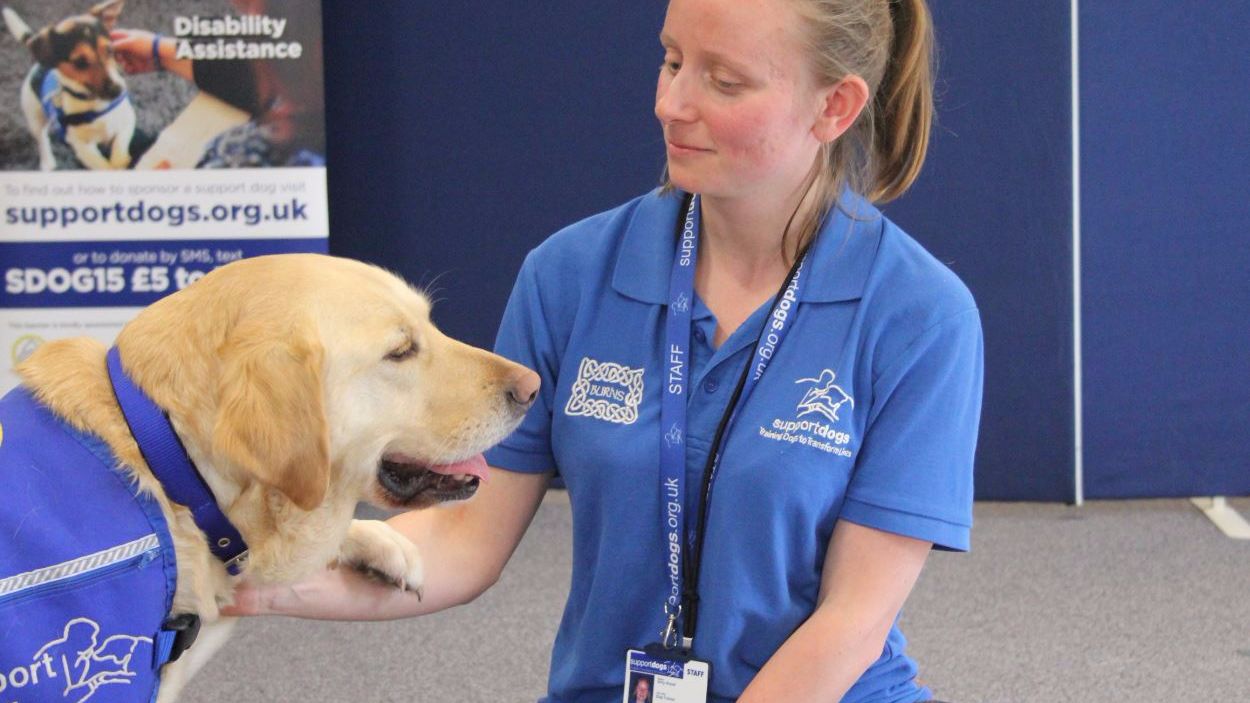
Amy, Dog Trainer at Support DogsWe focus on three main areas of general training: fetch, pull and touch.
Amy is a Dog Trainer at Support Dogs, teaching the dogs at this early stage of their careers.
“We focus on three main areas of general training: fetch, pull and touch.”
“Once the dog knows how to fetch a ball, we can then turn that into fetching keys, retrieving goods from a supermarket shelf, bringing a TV remote or even seeking help,” says Amy. “For pull, we can turn that into pulling off a jacket, or pulling open a door.”
‘Touch’ is slightly more complicated. Once the dog has learnt to touch various parts of the body, Amy encourages them to touch a sticky note on her hand.
Sticky notes can then be placed on various surfaces, teaching the dog to press disabled access buttons and close doors.
‘Touch’ can also be used as a ‘nudge’ to interrupt harmful repetitive behaviours.
Once the dogs have succeeded in their general training and been introduced to a match, dogs and families spend an intensive three week period learning to work together. The dogs then move in with their new families, completing an additional six months of training before finally qualifying.
“Support Dogs is not a big charity at all,” says Danny, “and the money that BBC Children in Need gives us is so, so important.
“We are truly overwhelmed with the demand for our work at the moment. And we want to grow; we want to help more people, and that’s only possible thanks to the wonderful people who donate to BBC Children in Need.”
Danny, Fundraising Manager at Support DogsWe want to grow; we want to help more people
